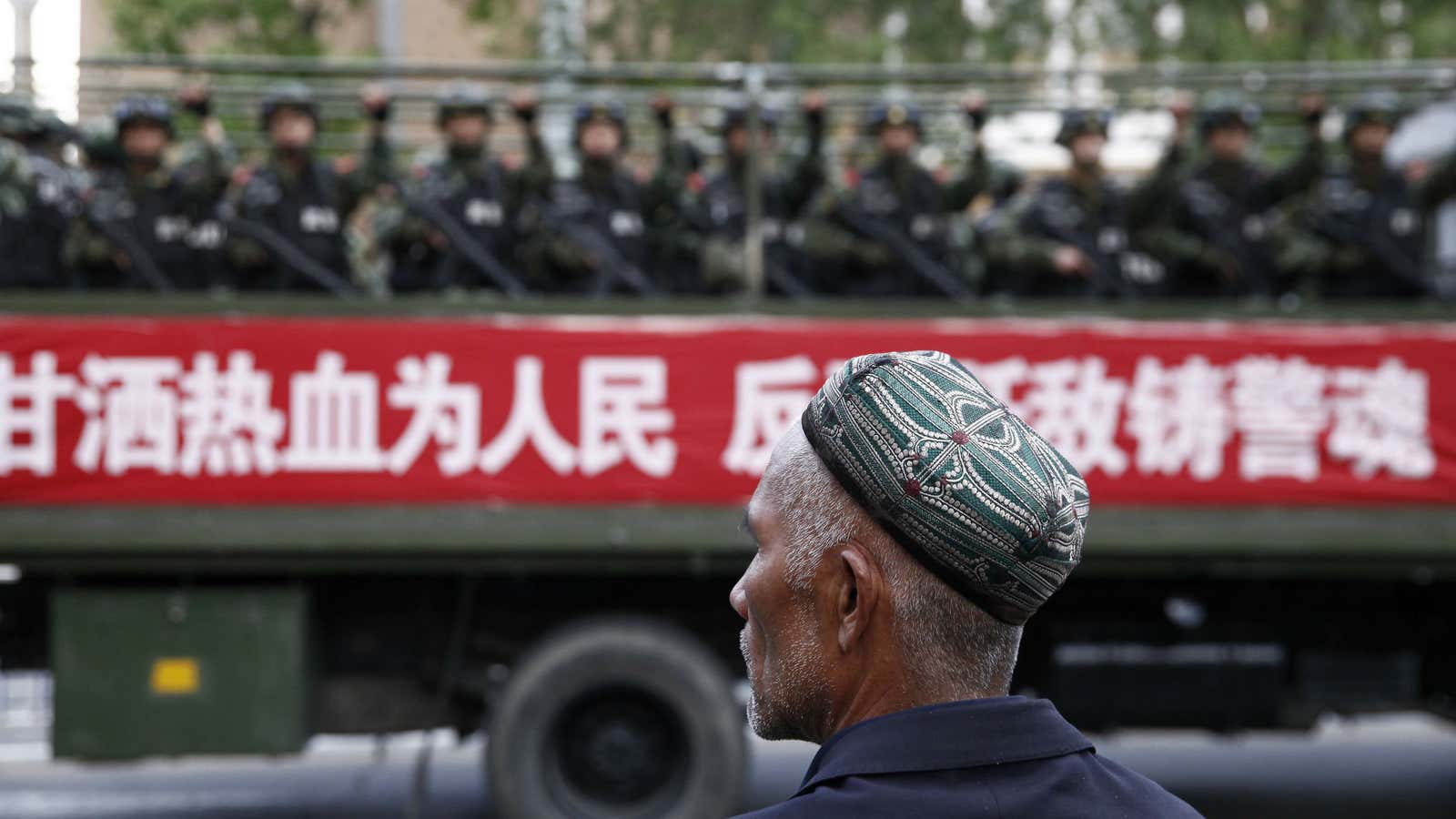The ongoing trade war between China and the US has, until now, been mostly focused on economic issues. Washington just widened the scope to include human rights.
The US commerce department announced yesterday (Oct. 7) that it would put 28 Chinese governmental and commercial organizations to the Entity List, which bars companies on the list from buying parts and components from US companies. China’s Huawei, the world’s largest telecoms equipment maker, was put on the list in May, with the US citing national security concerns. The move to broaden the list has been rumoured to be in the making since May, but the scope of entities added was much wider than previously anticipated.
Among the 28 entities are eight Chinese tech companies. These include Hikvision, the world’s largest video surveillance products supplier, and its peer Zhejiang Dahua Technology; voice recognition software developer iFlytek; forensics app developer Meiya Pico; AI giant SenseTime and its smaller peers Megvii and Yitu, as well as Yixin Science and Technology, a supplier of micro and nano fabrication equipment. In addition to the companies, the People’s Government Public Security Bureau in Xinjiang and 19 of its “subordinate elements” have also been put on the list, according to the announcement.
The commerce department said the entities have been “implicated in human rights violations and abuses in the implementation of China’s campaign of repression, mass arbitrary detention, and high-technology surveillance against Uyghurs, Kazakhs, and other members of Muslim minority groups in the Xinjiang Uyghur Autonomous Region (XUAR).” Wilbur Ross, Secretary of Commerce added that the US government “cannot and will not tolerate the brutal suppression of ethnic minorities within China.”
Over one million Uyghur Muslims are estimated to be held in re-education camps across Xinjiang. Outside of the camps, near omnipresent surveillance in the autonomous region of the Muslim population has been a serious boon to the business of Chinese tech firms. Hikvision, for example, has won contracts worth at least $290 million in Xinjiang, according to the New York Times.
Hikvision said in a statement that it “strongly opposes” the decision by the US to add it to the blacklist, and said this “will deter global companies from communicating with the US Government, hurt Hikvision’s US businesses partners and negatively impact the US economy.” The company said it has tasked former US ambassador Pierre-Richard Prosper to look into its practices in Xinjiang this year, and a report will be complied on Proper’s findings, according to a company spokesperson.
SenseTime said in April in response to a New York Times report that accused the company of using its technology to profile Muslims in Xinjiang that its relevant teams “were not aware” of the practice, while Megvii told the newspaper it was focused on “commercial not political solutions.” Megvii, which filed for a public listing in Hong Kong in August, said in its IPO prospectus that it wanted to use its technology in “engineering for good” for the world.
The US commerce department’s move also comes as ministers from both countries are set to begin a new round of high-level trade talks this Thursday (Oct. 10) in Washington. Beijing previously said it was preparing for “positive progress” to come from the negotiations, adding that it has purchased large amounts of soybeans and pork from the US in late September.
